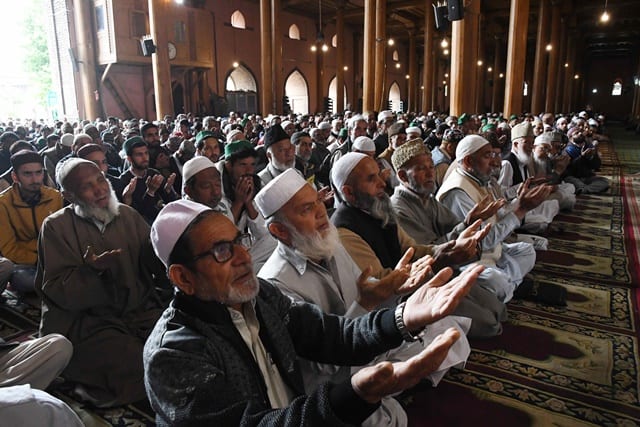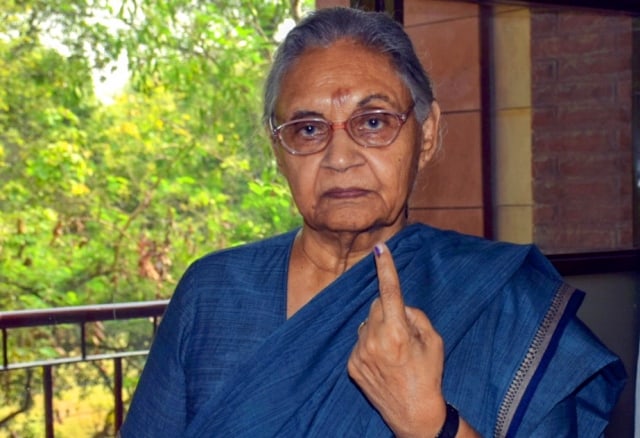
Month: May 2019

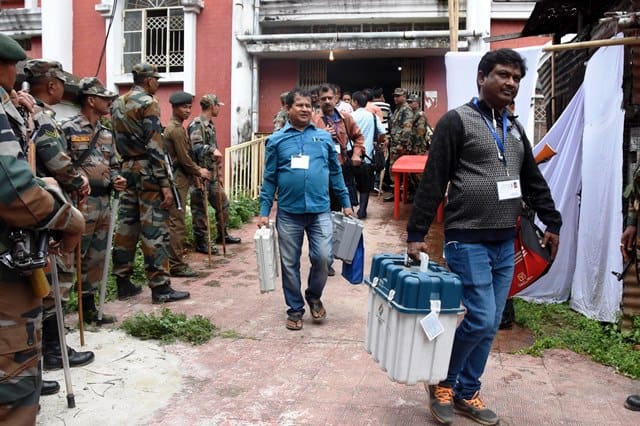
63.3% Voting in Penultimate Poll Phase
The voting percentage may go up after details are received from the states, a Commission official said.
Polling was held on 14 seats in Uttar Pradesh, all 10 seats in Haryana, 8 seats each in Bihar, Madhya Pradesh and West Bengal, seven in Delhi and four in Jharkhand.
Nearly 60 per cent polling was registered in the seven Lok Sabha seats in Delhi on Sunday, five per cent lower than in the 2014 general election, the Election Commission of India said.
The voting percentage at 6 pm was 59. 8 per cent and it is likely to rise after details are received from the constituencies, an EC official said.
In 2014 Lok Sabha polls, the turnout was 65.1 per cent, he said.
As many as 164 candidates are in the fray, the official said, adding that 1.43 crore voters were eligible to exercise their franchise.
(ANI)
]]>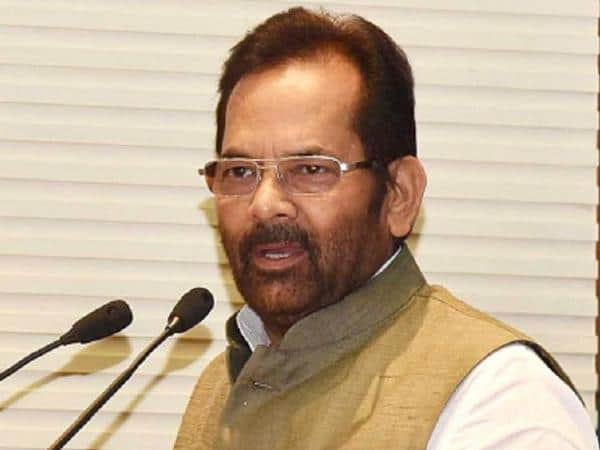
BJP Decries 'Goondaism' By Mamata Rule
“Bengal has become a laboratory of ‘goonda-tantra’ and ‘goonda-tantra liberty’. Raj tantra has turned into goonda tantra in the state. Constant attacks by goonda tantra show that they do not believe in our constitution. Didi’s ego and intellect will choo-mantra (vanish) on May 23, when results of the ongoing Lok Sabha election will come out. After May 23, some political parties have to fight very hard for their recognition,” said Naqvi in Kolkata at a press conference.
Taking on Mamata Banerjee for murder and continuous attacks on BJP cadres in the state, Naqvi said: “BJP booth president Narendra Mandal was murdered, the convoys of our Lok Sabha candidate Bharati Ghosh and BJP state-unit president Dilip Ghosh were vandalised early today. BJP leaders and workers are being prevented to participate in the biggest festival of democracy. This is all because TMC knows this election is all about Prime Minister Narendra Modi.”
Polling in West Bengal in almost all the phases has been marred by violence, primarily due to clashes between BJP and TMC workers. Earlier in the day, BJP’s Ghatal candidate Bharati Ghosh was manhandled by alleged TMC women cadres at a polling booth in the constituency. Her convoy was also attacked and the vehicles were vandalised.
Also, three BJP workers were attacked in three separate incidents and one among them, Raman Singh, was found dead in Gopiballabpur area of Jhargram.Naqvi further alleged that TMC supremo Mamata has ruined the prestige of West Bengal.
“The EC is not taking strict action against Mamata government. TMC goons have hijacked government commissionary. Why such incidents did not take place anywhere around the country?”
“We want action against growing anarchy, booth capturing incidents and violence in the state. We want repolling. These goons were called from outside to attack BJP cadres. We want police to file a case and arrest them to hold free and fair elections in the state,” Naqvi said.
Comparing the achievement of BJP government in the past five years with previous governments at the Centre, the Union Minister said: “Prime Minister Modi has worked for inclusive growth of the country without any discrimination. ‘Gaali gang’ is levelling allegations and deliberately bringing new issues against the BJP as they know citizens are with Prime Minister’s good governance and development.”
Naqvi also cornered West Bengal Chief Minister over ‘Mahagathbandhan’, which is forged to defeat BJP in the ensuing general elections. “Contradiction and confusion have proved that parties will fail to stitch a grand alliance against the BJP. People do not want a contract prime minister but a perfect prime minister. If a contract prime minister will form the government then Mamata will say she wants to be PM for six months then Mayawati and then Chandrababu Naidu, among others.”
On being asked if he is not happy with an opposition forming ‘Mahagathbandhan’, Naqvi said: “I do not have any problem with it. But no party is with Mamata. They all are fighting with each other. If it could not happen before, it will not be possible again.”
He further said that his party will take the matter up with the EC against ‘goonda tantra’, adding that he wants election body to perform effectively.
In West Bengal, voting is being across seven phases for the 42 parliamentary constituencies. Eight seats are at stake today in the sixth round polling, with results scheduled for on May 23.
(ANI)
]]>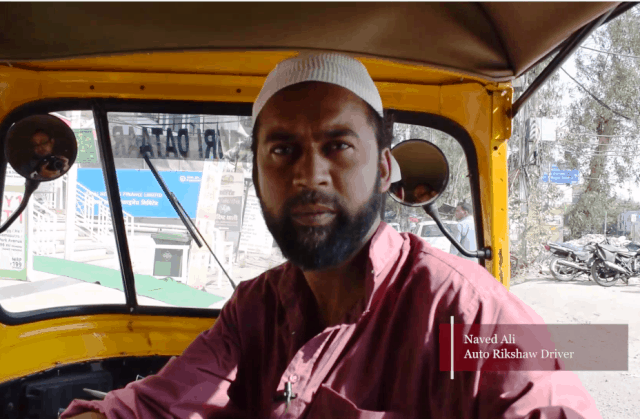
Watch – The Battle For Bhopal
In one of the most keenly watched electoral contests in the country, terror accused Sadhvi Pragya is pitted against former chief minister Digvijay Singh for Bhopal Lok Sabha seat. LokMarg tries to gauge the mood of the voter.
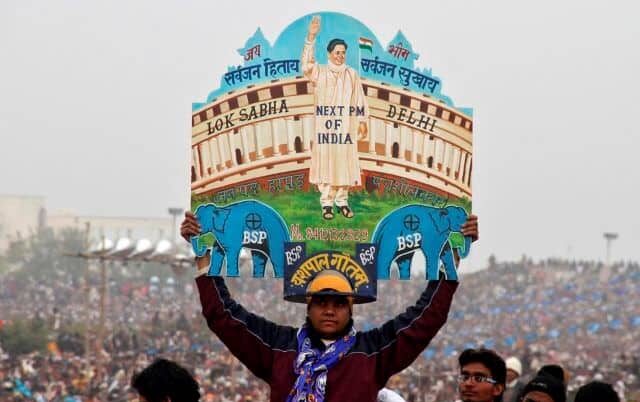
PM Mayawati: Unthinkable Is Possible
When the Bahujan Samaj Party drew a blank in the 2014 Lok Sabha elections and was subsequently reduced to a mere 19 seats in the Uttar Pradesh assembly in the 2017 state polls, political observers and analysts were quick to declare that the party’s chief Mayawati had lost her touch and was on her way out.
But there has been a dramatic turnaround since then. As the ongoing Lok Sabha election enters the final phase, the same Mayawati, who was being written off as a political has-been, is being mentioned as a possible Prime Ministerial candidate provided the opposition parties notch up a respectable number of seats to form the next government.
Mayawati herself indicated recently that she has Prime Ministerial ambitions when she declared that she plans to contest the Lok Sabha election. She chose to stay away from the current general election but her decision sorely disappointed her Dalit support base which is pinning its hopes on “Behenji” occupying the country’s top post.
The BSP chief’s latest statement is essentially a message to her supporters that they should come out and vote in large numbers as she is very much in contention for the Prime Minister’s post. If the opposition is in a position to form the government later this month and she does emerge as its Prime Ministerial candidate, rules allow her six months to get elected to either house of Parliament.
Like West Bengal chief minister and Trinamool Congress chief Mamata Banerjee, Mayawati has the necessary credentials to lead the country. Not unlike Mamata Banerjee, the BSP chief carved out a place for herself in a caste-ridden and patriarchal society to emerge as the unquestioned leader of her party. Mayawati has been a four-time chief minister of the country’s most populous and politically-important state of Uttar Pradesh; has proved to be a strong and efficient administrator; ensured accountability from her officials; tamped down on atrocities against Dalits and seen to it that the law and order situation in the state was not allowed to get out of hand.
Also Read: Will Project Behenji As PM, Says Jogi
On the flip side, there have been serious corruption charges against her, which continue to haunt her even today. She has also been accused of squandering public funds on erecting statues of the BSP’s election symbol (elephant), of herself, her mentor Kanshi Ram and other scheduled caste leaders. But this has not dimmed her popularity among the Jatavs who are convinced that Mayawati is being hounded because she is a Dalit.
In fact, Mayawati’s caste is her chief calling card. And that’s where she scores over Mamata Banerjee. A woman and a Dalit to boot, the daughter of a post office employee was a school teacher before she ventured into the world of politics when she was adopted by Scheduled Caste politician Kanshi Ram as his protege, becoming a key member of the Bahujan Samaj Party founded by him. Since then, she has emerged as a leader in her own right, becoming an icon and inspiration for the large scheduled caste population who view her as a symbol of Dalit empowerment. When she overcame all social and economic hurdles and first took over as Uttar Pradesh chief minister in 1995, the appointment of the first Dalit woman to this post was hailed by late Prime Minister P V Narasimha Rao as a “miracle of democracy.”
ALSO READ: BSP Remains A Force To Reckon With
Unlike Mamata Banerjee, whose presence is confined to West Bengal, Mayawati has the advantage of tapping into the support of Dalits across the country though Uttar Pradesh remains her party’s main base. If a second miracle was to catapult her to the Prime Minister’s post, it will mark a huge victory for the country’s Dalits who have been oppressed by the upper castes for centuries. It will go down in Indian history as the country’s “Barack Obama” moment, finally giving the scheduled castes a share in political power.
ALSO READ: Can Didi Rise Above Bengal Politics?
It is precisely for this reason that other opposition parties, including the Congress, will have no choice but to endorse Mayawati’s candidature if her name is proposed for the Prime Minister’s post. The country is ready for a Dalit Prime Minister. Mayawati’s elevation will come at a time when the country has been witnessing an increase in the incidence of violence against Scheduled Castes since the Modi government came to power in 2014. There is simmering anger among the Dalits which can be best assuaged if the BSP chief moves into Delhi’s South Block office of the Prime Minister.
Having proved her mettle as a chief minister, Mayawati should not find it difficult to adjust to her new role as the country’s premier. While she will be expected to bestow special favors on Dalits in terms of better funding for their education and improved job opportunities, Mayawati’s interests will be better served if she avoids playing the caste card in the appointment of her ministers and advisors. She will need all the expert advice because handling the country’s economy and foreign affairs is uncharted territory for her. A failure to do has the potential of inviting a backlash from the upper castes who will not be happy to see a Dalit woman occupying the country’s top post.
Though Mayawati, like Mamata Banerjee, is autocratic, mercurial and unpredictable, she also has a streak of pragmatism in her. For instance, the BSP chief did not hesitate to put aside her aversion to pre-poll alliances and entered into a partnership with the Samajwadi Party, her bitter political rival, once she realized that her party’s political survival was at stake after it was pushed to the margins by a rampaging Bharatiya Janata Party first in the last Lok Sabha election and then the 2017 assembly poll.
Similarly, Mayawati resorted to deft “social engineering” in the run-up to the 2007 assembly elections in Uttar Pradesh when she realized it would have to expand her support base as it would not be possible for her come to power with the sole support of Dalits. Mayawati then went on to do the impossible when she extended an olive branch to Brahmins, even though her party’s identity was based on destroying the Brahminical order. The BSP chief admitted Brahmins to the BSP ranks, fielded them in elections and promised them positions of power both in the party and the government. The strategy paid off as Mayawati went on to form the government in Uttar Pradesh then with a comfortable majority.
Despite Mayawati’s best efforts to be even-handed in her approach, it would be naïve to believe that her appointment to the country’s highest office will not be resented by the upper castes whose members have been wielding political power for decades. Don’t forget, Obama was succeeded by Donald Trump.
]]>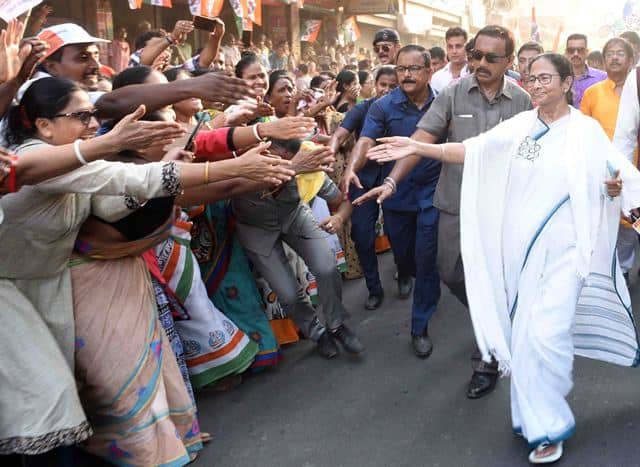
Didi Connects With Voters During 5km Walk
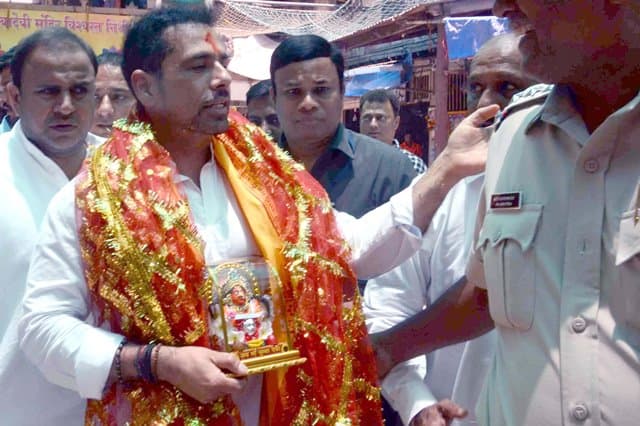
Robert Vadra Offers Prayers At Mumbadevi Temple
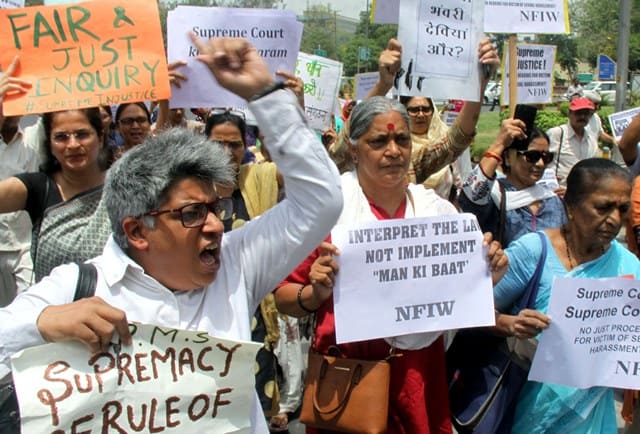
Woman Activists Seek Justice In Supreme Court
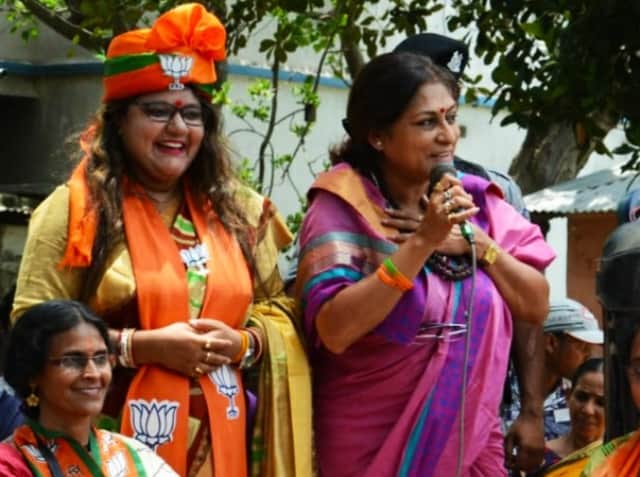
Star BJP Campaigner Holds Roadshow In W Bengal
